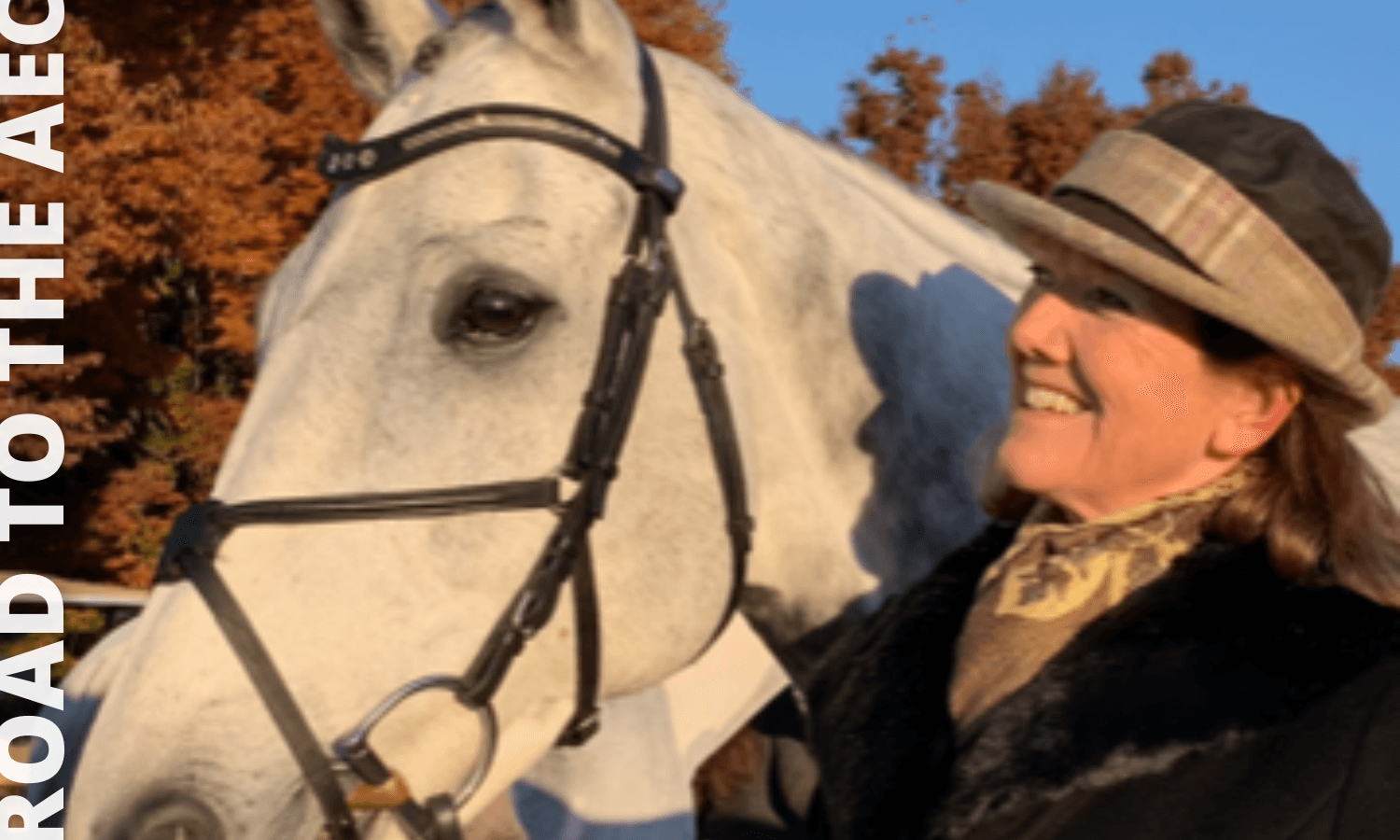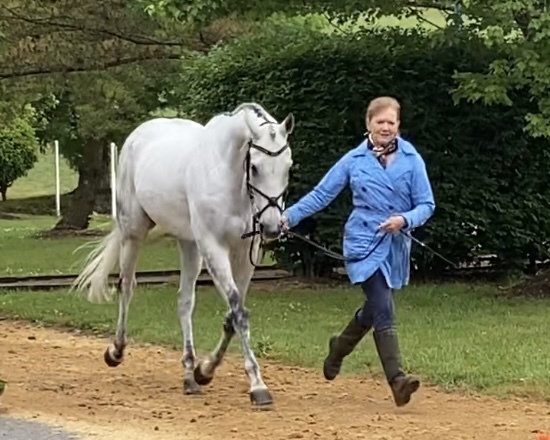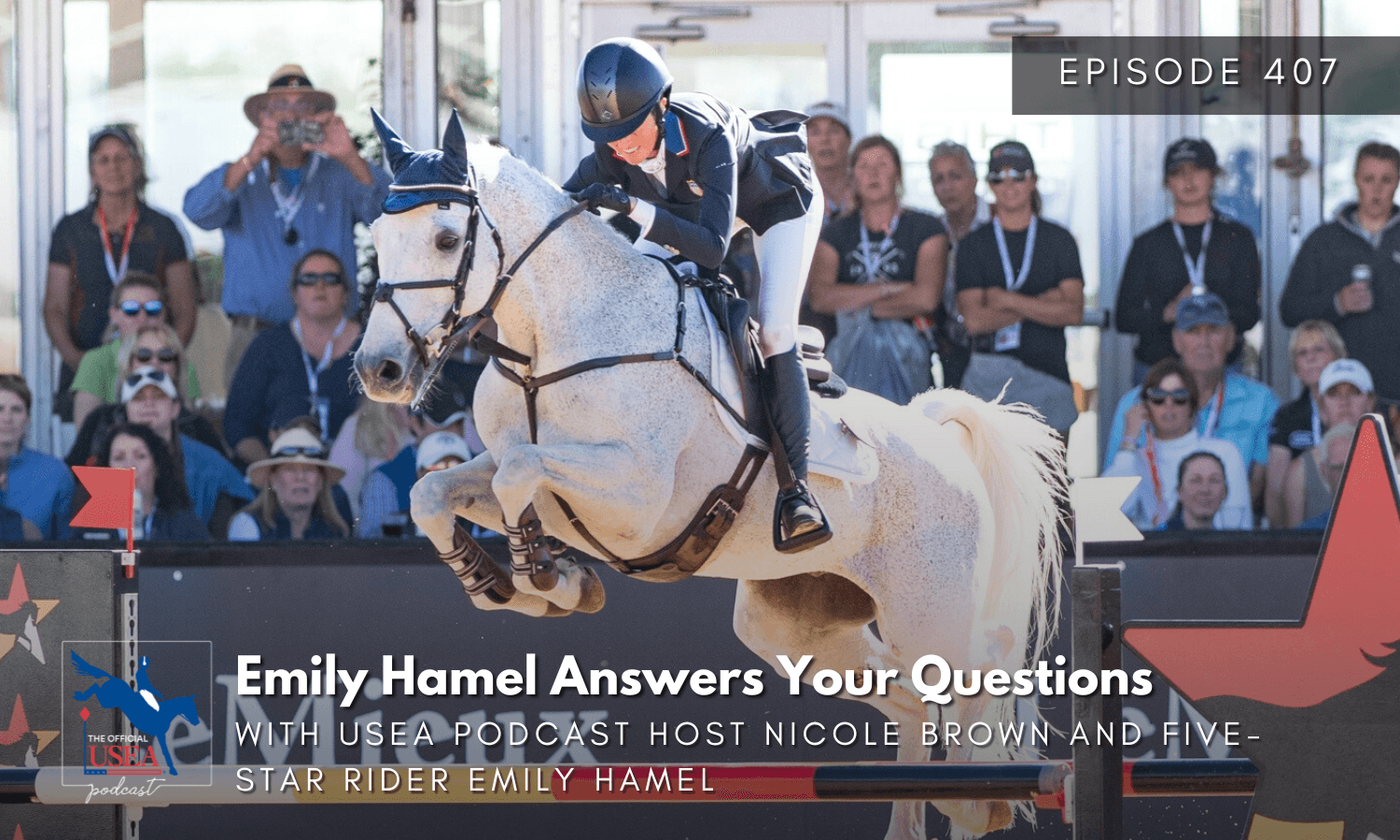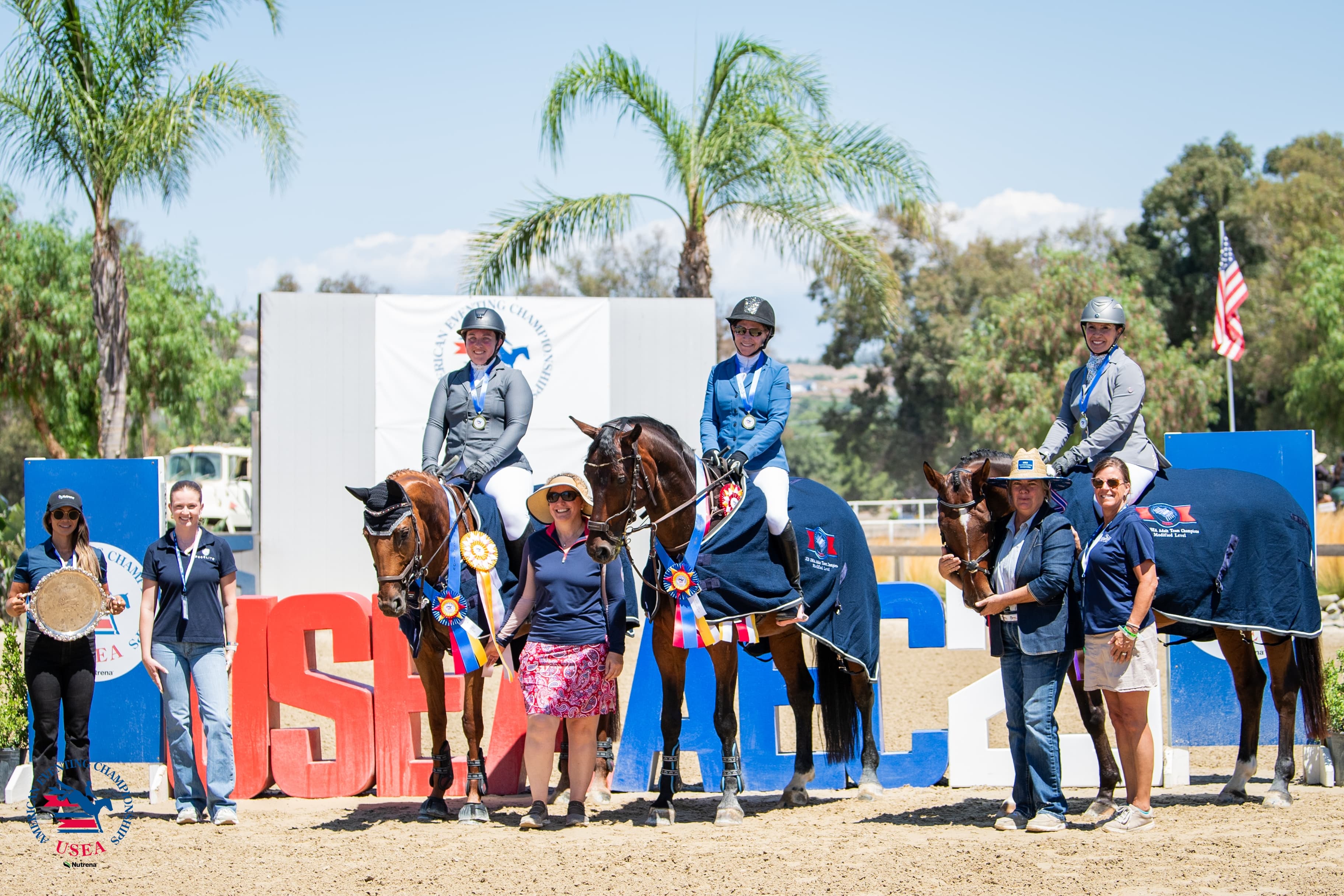The Road to the AEC: Special Reserve Has Half the Sight But Twice the Passion of Most Event Horses

I am heading to the USEA American Eventing Championships presented by Nutrena Feeds on my 10-year-old thoroughbred Special Reserve (The Visualizer x Deco Jazz). "Chip" is special to me in so many ways but particularly because three years ago he lost total vision in his left eye. I bought him from Chya Johnstone, a jockey from Oklahoma, who knew he was a talented horse that might make a nice jumper or event horse. He was 5 years old and Chya had started to jump him. So when I bought him I started training him in dressage and cross-country.
He was initially afraid of water, but slowly over several months, he learned to go through it. He progressed really nicely, improving his dressage scores, and really started to enjoy cross-country. He is a good jumper. His hind end in particular is rather flamboyant over fences and with that, his white tail sails in the air over every jump! He progressed up the levels very nicely, winning the Area I Novice Horse Championship, followed the next year by finishing Reserve Champion at the Area II Training Championships, followed the next year by finishing Reserve Champion at the Area II Modified Championships in 2018. I started to think he was living up to his show name Special Reserve as he finished in the reserve position so often.
Chip competed for the first time at Preliminary in 2019, where he won his division. He is such a lovely horse to train. He has a wonderful work ethic and likes to learn. He does have a wild side, particularly in the winter when it is cold. I had more than a couple of competitions when he was very rambunctious, and I had to work to stay with him while he was demonstrating his athleticism.

That same year he competed for the first time in an FEI division. He led after dressage in the CCI* at the VHT International H.T. in the fall of 2019 where he would ultimately finish second. A year later he would have an accident in the cross ties and suddenly everything changed.
Chip was not a horse to pull back in the cross ties; he’s generally very quiet. But that day he pulled back, and despite all the safety measures (bailing twine on both cross ties and a breakaway halter) before the second cross tie gave way, Chip had been struck in the eye, and it looked very serious.
The vet arrived quickly and assessed the damage. She actually felt as though the eye would heal as he had not detached his retina. Which, I am to understand, is the most common cause of traumatic blindness. She found a big welt on his neck; that looked like a wasp or hornet bite which might explain his unusual panic. We needed to protect Chip from further injury as it would take time for him to adjust to his new limited vision range, so we taped those pool noodles on all the edges of his stall: doors, windows, etc. as he would bump into things on his blind side. We treated his eye and hand-walked him to let him graze while we waited for his vision to recover. But it didn’t.
A specialist was called in, and he found that Chip had fractured the lens of his left eye and would be completely blind in that eye permanently. I was devastated, but content to have my lovely partner pain-free, and whatever he could do would be fine. Maybe we could do just dressage or trail riding; whatever he could do he had a home for life with me. My veterinarian said that some horses can do amazing things with one eye and that if I took it slowly Chip would let us know what he could do. So I started with easy riding in the arena, then short trail rides. He would cling to the right side of the trail on his vision side. That made sense to me, so I would say “watch” when the trail had a dip or rock or root. Sometimes he would trip a little then he learned to really look down when I said “watch.”
Poles were next. He never missed at the walk, then trotting. He amazed me. Slowly, very slowly, we progressed to cantering poles, then cavaletti. Then one day I tried jumping a little jump, and he was perfect. He returned to eventing five months after his accident at the Novice level.
I was really nervous, but he was just the same as before his accident. I do take a great deal of responsibility when we turn to the left to approach a jump, but he really has adapted and every day is special. Very slowly we moved up the levels and returned to Preliminary. Throughout this journey, people have told me stories of other half-blind horses competing in many disciplines, including Viscera who competed at the Tokyo Olympics representing Sweden in eventing.
I have always admired and loved horses since I was little, and my journey with Chip has been extraordinary. Every day that I get to ride my special partner is a gift that I am grateful for. We look forward to competing this year at the AEC.
About the USEA American Eventing Championships (AEC)
The USEA American Eventing Championships (AEC), presented by Nutrena Feeds, is the pinnacle of the sport at the national levels. Held annually, the best junior, adult amateur, and professional competitors gather to vie for national championship titles at every level from Beginner Novice to Advanced. This ultimate test of horse and rider draws hundreds of combinations from around the country to compete for fabulous prizes, a piece of the substantial prize money, and the chance to be named the National Champion at their respective levels. In fact, the 2021 AEC garnered over 1,000 entries and now stands as the largest eventing competition in North American history. The 2023 USEA American Eventing Championships presented by Nutrena Feeds will be held Aug. 29—Sept. 3 at the Kentucky Horse Park in Lexington, Kentucky. Click here to learn more about the USEA American Eventing Championships.
The USEA would like to thank Presenting Sponsor: Nutrena Feeds; Advanced Final Title Sponsor: Adequan; Platinum Level Sponsor: Bates Saddles; Gold Level Sponsors: Capital Square, Horse & Country, Parker Equine Insurance, Smartpak, Standlee; Silver Level Sponsors: Auburn Labs, Ecogold, Kerrits, The Jockey Club; Bronze Level Sponsors: 70 Degrees, Athletux, Black Petticoat, The Chronicle of the Horse, Devoucoux, D.G. Stackhouse and Ellis, Dubarry of Ireland, Equestrian Team Apparel, Grayson-Jockey Club Research Foundation, Horseware Ireland, Majyk Equipe, Retired Racehorse Project, Ride EquiSafe; Contributing Level Sponsor: CrossCountry App, Georgetown – Scott County Tourism, Lexmark, L.V. Harkness, Mountain Horse, Mrs. Pastures Cookies, #WeRideTogether; Prize Level Sponsors: Coach Daniel Stewart, EquiFit, Equilab, Equiluxe Tack, Equine Essentials, Equine Pulse Performance, FarmVet, Achieve Equine/FLAIR Equine Nasal Strips, Horses 4 Your Consideration, Hound & Hare, I Love My Horse Eventing Boutique, Jack’s Favorites, Jane Heart Jewelry, Kinetic Equine Services, LeMieux, Levade Kentucky, Mare Modern Goods, OneTouch Fly Spray, Parkmore Supplements, Practical Horseman, Sidelines Magazine, Spy Coast Farm, Strides for Equality Equestrians, and VTO Saddlery.















